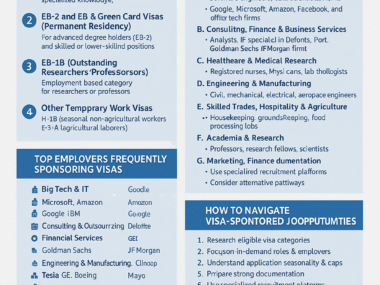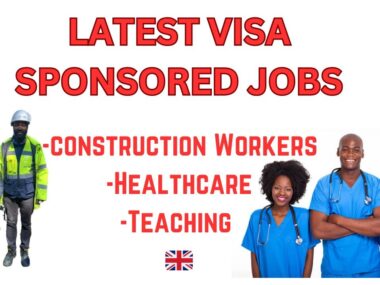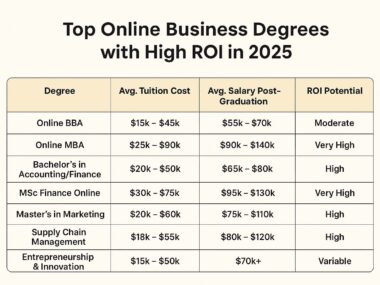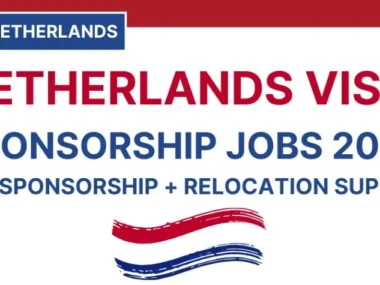JOBS IN NIGERIA 2025:
A Practical, No-Fluff Guide
The 2025 backdrop: what’s driving hiring?
Nigeria’s job market in 2025 is a tale of resilience and recalibration. Services continue to drive GDP, with the National Bureau of Statistics (NBS) reporting Services contributed the largest share of output into 2025, while Industry improved and Manufacturing ticked up year-on-year—signals that private services (telecoms, ICT, finance, trade, creative) remain the beating heart of job creation even as factories, power, and mining try to regain footing.
On the labour front, Nigeria’s “headline” unemployment rate under the newer methodology hovered in mid-single digits through 2024 (e.g., 5.3% in Q1 2024), which can mask underemployment and informality; use this as context rather than comfort. The bigger point for job-seekers is that employment is still dominated by services and the informal sector, with formal roles concentrated in a handful of urban hubs.
Policy-wise, reforms since mid-2023 (FX market unification, monetary tightening, bank recapitalisation, subsidy removal) are reshaping hiring and investment. These moves sought to stabilise macro conditions, attract capital, and clean up the FX market—factors that influence whether firms post openings or freeze headcount.
Wages and living costs remain a tension point. A National Minimum Wage of ₦70,000/month (2024 amendment) helps set floors in formal jobs, but inflation and currency weakness compress real incomes, so candidates increasingly pursue hybrid/remote roles that earn FX or offer dollar-linked pay.
Finally, two growth levers to watch in 2025: (1) public-private initiatives in agriculture and agro-processing that aim to create jobs along value chains; and (2) the creative economy push (film, music, design, gaming, fashion), which government and private actors are positioning as a multi-million-job engine this decade.
High-growth sectors and where the jobs really are
Below are the sectors most likely to hire in 2025, the roles they recruit for, and the skills that move applications to the top of the pile.
A) ICT & Digital Services (Telecoms, Cloud, Cyber, Data)
Why it’s hot: Services led GDP into 2025; telcos and platform companies continue to scale connectivity, payments, cloud, and AI adoption in banks, retail, logistics, and public services.
Roles: Network engineers, DevOps/SRE, product managers, data engineers, data analysts, data scientists, MLOps, cybersecurity analysts/GRC, cloud architects, TAMs, technical writers, growth PMMs.
Boosters: Azure/AWS/GCP certs; CompTIA Security+, CISSP/CCSP (for senior); SQL + Python for analytics; product discovery & experimentation; ITIL/COBIT for enterprise ops.
B) Fintech & Financial Services
Why it’s hot: Banks modernise cores; FX and risk management skills are prized; fintechs still hire for compliance, risk, partnerships, and growth—especially as reforms lift capital markets participation.
Roles: Risk analysts, compliance & AML/KYC, treasury & FX ops, core banking engineers, payments PMs, credit/data modellers, fraud ops, BDMs.
Boosters: ACAMS, CFA L1/2, FRM, SQL + credit modelling, ISO 27001, PCI DSS exposure.
C) Agriculture, Agro-Processing & Food Value Chains
Why it’s hot: Large-scale programmes to build agro-processing zones aim to cut post-harvest losses, create manufacturing-adjacent jobs, and reduce food imports. Expect openings in operations, quality, logistics, and engineering near processing hubs.
Roles: Agronomists, extension officers, quality assurance, plant maintenance, process engineers, cold-chain logistics, procurement, export compliance.
Boosters: HACCP/ISO 22000, supply-chain (APICS/CSCP), basic CAD/maintenance planning, trade documentation under AfCFTA.
D) Energy (Oil & Gas) + Power & Renewables
Why it’s hot: IOC/indigenous producers are optimising assets; power firms expand metering, distribution upgrades, embedded generation, and renewables pilots.
Roles: HSE, process & production engineers, instrumentation, power systems engineers, commercial analysts, energy traders, ESG reporting, project finance.
Boosters: HSE (NEBOSH/IOSH), PMP/Prince2, SCADA/PLC exposure, financial modelling (Excel + Power BI), carbon accounting basics.
E) Logistics, E-commerce & Mobility
Why it’s hot: Trade remains a large share of GDP; last-mile logistics, warehousing tech, and B2B procurement platforms keep expanding—even with macro headwinds.
Roles: Fleet managers, route optimisation analysts, warehouse ops, procurement, demand planners, category managers, merchant success, field sales.
Boosters: Excel/Google Sheets mastery, Power BI, inventory systems (Odoo/Zoho/NetSuite), lean operations, SQL for ops analytics.
F) Creative & Media (Film, Music, Design, Gaming, Fashion)
Why it’s hot: Government and donors see it as a quality-job engine; 2024 saw six-figure job creation claims across the value chain. Studios, labels, agencies, and IP/rights-management firms are formalising.
Roles: Producers, editors, animators, VFX, sound engineers, social/video content leads, brand designers, community managers, IP/legal ops, rights & royalties ops, product managers for creator tools.
Boosters: Adobe suite (Premiere/After Effects/Audition), Blender/Unity/Unreal, digital rights/IP literacy, audience growth analytics.
G) Health, Pharma & Medtech
Why it’s hot: Private HMOs and diagnostics chains scale; telehealth and lab networks formalise; public health grants create programme roles.
Roles: Clinical officers, pharmacists, med reps, lab scientists, health informatics, monitoring & evaluation (M&E), grant management, supply-chain cold chain ops.
Boosters: Project grants literacy (USAID/Global Fund rules), DHIS2, Good Clinical Practice (GCP), pharmacovigilance basics.
H) Education & EdTech
Why it’s hot: Skills transitions + youth bulge; bootcamps and PE-backed schools hire for ops, admissions, career services, product & content.
Roles: Instructional designers, LMS admins, student success, academic ops, sales/admissions, school business managers, teacher trainers, bootcamp instructors.
Boosters: Curriculum design, assessment, LMS (Canvas/Moodle), employability partnerships.
I) Public Sector, Donor-Funded & Development
Why it’s hot: Macro reforms and social programmes bring technical hiring in tax, digitisation, public finance, health, agriculture, climate, and digital trade policy (AfCFTA).
Roles: Policy analysts, M&E specialists, programme officers, procurement, communications, public finance management (PFM), digital trade specialists.
Boosters: Results frameworks, TOR writing, grant budgeting, AfCFTA protocols, stakeholder mapping.
J) Manufacturing & Construction/Real Estate
Why it’s hot: Manufacturers optimise for energy costs, local inputs, and exports; construction focuses on mid-market housing, industrial parks, and data centre build-outs.
Roles: Plant maintenance, process engineering, QA/QC, project planners, cost engineers, facility managers, HSE, procurement.
Boosters: CMMS, AutoCAD/Revit, Primavera/MS Project, ISO 9001/14001, strong vendor management.
The informal reality—and how to turn it formal
Multiple studies show Nigeria’s informal sector remains the dominant employer and absorbs the vast majority of new jobs, from retail/wholesale micro-enterprises to creative gigs and POS/agent banking. For graduates, this can feel like “no real jobs,” but it’s also a pathway: start with project work, then work backward to formalise—register a business name, keep clean books, build case studies, and craft a portfolio that translates gigs into measurable outcomes.
Playbook to formalise your informal experience:
Keep monthly ledgers of revenue, expenses, and margins (even a Google Sheet).
Translate tasks into metrics: “Fulfilled 1,200 orders with 96.5% on-time delivery; reduced stock-outs from 18% to 5%.”
Secure 3–5 client testimonials on LinkedIn and your website/Notion page.
Get basic registrations (SMEDAN/Tax ID) to qualify for procurement and grant calls.
What employers want in 2025 (skills & signals)
Core skills across sectors
Quant + tools: Excel/Sheets super-user (lookups, pivots, nested formulas), SQL basics, Power BI.
Product & delivery: Customer discovery, journey mapping, Agile basics, stakeholder communication, tight documentation.
Compliance & risk: InfoSec awareness, data protection, AML/KYC basics (for finance), HSE literacy (for industry).
Writing & comms: Clear emails, crisp briefs, intuitive decks—signal maturity and leadership potential.
Signals that boost shortlisting
Certs relevant to target roles (not “spray and pray”).
Evidence of outcomes (before/after numbers).
Portfolio or GitHub/Behance/Notion—even for non-designers: show artifacts (SOPs, roadmaps, dashboards).
Referees at recognised firms or well-run SMEs.
ATS-friendly CV aligned to the exact job description (JD).
Salary, minimum wage & negotiating in 2025
The National Minimum Wage is ₦70,000/month (formal sector baseline), but actual entry-level pay varies widely by city and sector; many SMEs pay above/below depending on role complexity and revenue. Inflation keeps real earnings tight, so benefits (HMO tier, pension compliance, transport/meal subsidy, remote days, training budget) can matter as much as base.
Negotiation tips
1. Lead with value: one or two quantified achievements tied to the role’s KPIs.
2. Bracket the range using peers/market intel; trade flexible work, learning budget, or annual FX bonus if base is capped.
3. Ask about review cycles (6 or 12 months) and OKR-linked increments.
Where to find jobs (channels that actually work)
A) Direct employer portals – banks, telcos, IOCs, large FMCGs, consulting firms, development agencies. Big firms mostly use ATS; tailored CVs + referrals matter.
B) LinkedIn – still #1 for white-collar discovery. Post concise project threads, comment insightfully on sector posts, and DM hiring managers with a one-paragraph value pitch.
C) Niche boards/communities – tech (Dev/PM/data/security) groups, healthcare lists, donor mailing lists, product/design Slack/Discords.
D) Government/Donor – ministry/agency sites, UN system, USAID/UK-FCDO implementers, AfDB/World Bank projects. (Agri-processing and creative-economy initiatives will post lots of programme and operations roles across states.)
E) Creator/Creative – production houses, labels, post-production studios, brand agencies, event companies, and rights/IP firms increasingly post formal openings as the ecosystem scales.
By sector: role maps & entry routes
Tech & Digital
Entry routes: Graduate trainee programmes at telcos/banks/consultancies; cloud support roles; QA/testing; analytics apprenticeships.
Mid-career pivots: Data analytics (SQL + Power BI), cloud associate certs (AWS/Azure), cybersecurity analyst (SOC + CompTIA Sec+).
Proof of readiness: A public dashboard (Power BI) using open datasets (sales, inventory, NBS data) + GitHub repo with SQL queries.
Finance/Fintech
Entry routes: Operations (reconciliations), KYC/AML, settlement, collections, agency network ops; then product ops/BA/PM.
Licences/certs: ACAMS (AML), CFA L1/2, FRM for risk; Excel + SQL for treasury/ALM.
Portfolio proof: Mini-case on reducing failed transactions, improving reconciliation cycle time, or fraud-rule tuning.
Agriculture & Processing
Entry routes: QA technician, plant ops trainee, procurement assistant, field extension officer.
Proof: HACCP checklists, supplier scorecards, yield dashboards; project story on reducing post-harvest loss.
Creative & Media
Entry routes: Assistant editor, junior motion designer, production assistant, community manager, catalogue/metadata ops.
Proof: 60–90-second reels, before/after brand refresh, short audio post-production clip; simple licensing brief to show IP literacy.
Health
Entry routes: HMO claims processing, lab tech trainee, med rep, programme assistant (NGO).
Proof: SOPs you authored, M&E frameworks, facility utilisation dashboard.
Logistics & E-commerce
Entry routes: Dispatch coordinator, inventory controller, procurement assistant, merchant support.
Proof: Route-planning improvement, shrinkage reduction, merchant NPS uplift.
Lagos vs. Abuja vs. Port Harcourt vs. others
Lagos: Tech, fintech, creative, FMCG, logistics, consulting, many HQs.
Abuja: Government, policy, donor/INGO, defence, think tanks, utilities HQs.
Port Harcourt/Warri/Yenagoa: Oil & gas, marine, logistics; OEM services.
Ibadan, Enugu, Kano, Kaduna, Akwa Ibom, Ogun: Manufacturing clusters, agri-processing, education, power projects, creative studios, and growing logistics.
Remote options enlarge the map—many 2025 candidates blend a Lagos-based contract with remote clients across Africa, Europe, or the Gulf.
2025 hiring calendar (typical rhythms)
Q1 (Jan–Mar): Annual budgets unlock; banks/telecoms/consultancies run grad schemes; donor projects post new-year RFPs and staffing.
Q2 (Apr–Jun): Tech/product, agri-processing pilots after harvest cycles; power projects; audit/finance backfills post year-end closures.
Q3 (Jul–Sep): Creative/brand pushes, telecom expansions, FMCG seasonal prep, academic ops.
Q4 (Oct–Dec): Contracting for the next year, donor pipeline roles, creative end-of-year production, retail hiring.
(These rhythms shift with macro shocks, but the pattern holds in many firms.)
Write a CV that gets callbacks (2025 ATS checklist)
Rule 1: Mirror the JD. If the role says “SQL, dashboards, stakeholder comms,” your CV should name those exactly in Skills and prove them in bullets.
Rule 2: Metrics > tasks.
Bad: Responsible for inventory management.
Great: Cut inventory variance from 14%→3% in 90 days by cycle counts + reorder point tuning (Odoo).
Rule 3: Keep it skimmable.
One page if <7–8 years’ experience; two max if you truly need it. Sans-serif fonts; no tables; consistent section headers; PDF export. Rule 4: Keywords naturally. ATS won’t read images; put certs (AWS SAA, ACAMS, PMP) in text. Rule 5: Context matters. Add one line per employer stating what they do (e.g., “B2B logistics startup serving 1,200 merchants in 7 cities”). Rule 6: Portfolio links. GitHub/Behance/Notion/Drive with samples (make links public). — 11) A cold outreach that works (copy/paste template) > Subject: Helping cut payment failures by 25% (quick idea)
Hi , I saw you’re hiring a . In my last role at , I reduced failed settlements by 23% in 60 days by tuning rules and automating two reconciliations (SQL + Python). I drafted a 1-page idea for that could lift success rates by 10–15% in 90 days (attached).
If useful, happy to walk through it on a 15-minute call this week.
Cheers,
| LinkedIn | Portfolio
Why it works: specific impact, relevant tools, a concrete offer, and low-friction ask.
Interview patterns you’ll see in 2025—and how to prep
Case-style (product/ops): You’ll get “How would you grow X metric by 20% in 6 months?” Prepare a 4-part structure: problem framing → levers → experiment plan → KPIs & risks. Bring a 1-page visual.
Technical (data/engineering): Expect SQL joins/window functions, Python data wrangling, system design basics (scalability, reliability), cloud primitives. Practice on free datasets; build a quick “sales + inventory” dashboard.
Behavioural: STAR still wins. Have 6–8 stories (growth, conflict, failure, leadership, ambiguity, impact, ethics). Tie each to measurable outcomes.
Early-career playbook (NYSC to 3 years)
Treat NYSC like an audition. Ask for a small, measurable problem (e.g., a weekly KPI pack, cleaning a dataset, or a vendor scorecard). Leave behind a repeatable system.
Side projects that pay: build dashboards for a local SME, run paid ads for a boutique, create templates for a clinic. Formalise as “Consultant (Freelance).”
Scholarships/certs: target one high-leverage cert; avoid certificate hoarding.
Mentors & referrals: 30 minutes monthly with one professional who can recommend you.
Mid-career transitions (3–8 years)
Package transferable impact: ops → product ops → product; finance ops → risk/treasury; customer support → success → account management.
Lead one cross-functional project and publish the outcome (internal brown-bag, short LinkedIn post).
Target supervisory scope (two to four reports) to unlock the next salary band.
Remote & hybrid work in 2025
Remote roles are still available—particularly in product, design, data, support engineering, technical writing, moderation, and back-office ops—though competition is global. Sell timezone advantage, language skills, and reliable power/internet plan. Offer a deliverable-based trial for 2–4 weeks to reduce employer risk.
Entrepreneurship as a job strategy
If the formal market is slow, build to hire: operate a lean micro-business that demonstrates the same competencies employers pay for (ops, sales, finance, product). A 6-month stint running a small logistics route or content studio can produce portfolio-grade evidence of leadership, P&L, and customer outcomes.
Government, policy & the job market: what to watch
Macro & FX reforms (unified FX market, orthodox monetary policy, bank recapitalisation timelines) influence the availability of credit and the confidence to hire—especially for banks, importers, manufacturers, and tech startups.
Nigeria Startup Act (NSA 2022) created a legal framework and incentives (labelling, potential tax/duty reliefs, programmes) that are maturing into 2025; startups with NSA “label” may be more structured in hiring.
Creative-economy push: federal and state initiatives, IP-backed financing pilots, and claims of hundreds of thousands of jobs in 2024 with multi-year targets—expect more formal roles in production, distribution, and rights management.
Agri-processing zones: AfDB-backed investments moving into additional states could generate operational, engineering, and logistics roles near sites. Track state announcements for procurement and staffing.
How to avoid job scams (2025 edition)
No reputable employer asks you to pay for interviews, training, or “application processing.”
Email domains: confirm company domain (not free webmail) or recruiter’s LinkedIn footprint.
Job titles vs. salary: “Graduate trainee” promising ₦600k/month is a red flag; verify on the firm’s site.
Venue & timing: mass invites at odd locations/hours are common scam patterns.
Contracts: read for probation, notice, pay date, leave, HMO, pension. If unclear, ask for HR contact and written confirmation.
A focused 30-day plan to land interviews
Week 1: Target & Tools
Pick 3 sectors + 5 companies each (15 total).
Rewrite 1 master CV into 3 tailored variants.
Build one case study (1 page) per sector.
Week 2: Portfolio & Outreach
Publish 2 artifacts (a dashboard, a process SOP).
DM 15 hiring managers/recruiters with your one-paragraph value pitch.
Week 3: Apply & Follow-up
Send 30 quality applications (not 300 generic).
After 5 days, follow up with a short impact note or relevant artifact.
Week 4: Interview Drills
Daily SQL/Excel/Product or role-specific practice.
Mock interviews with friends/online communities.
Prepare salary ask + alternatives (benefits, learning, review cycle).
Frequently asked questions (quick hits)
Q: I have only freelance gigs. How do I present them?
A: Create a “Selected Projects” section with outcomes, tools, and links. Two bullets per project, with metrics.
Q: Best cert for analytics?
A: Skip generic; choose Power BI Data Analyst or Google Data Analytics + hands-on SQL projects.
Q: I’m switching to product.
A: Start with product ops or associate PM; show backlog grooming, sprint metrics, and a user research summary.
Q: Should I accept an internship/NYSC extension in 2025?
A: If it’s structured (real KPIs, mentorship, high-signal brand), yes—especially if it leads to offer conversion.
The opportunity—and the mindset
2025 isn’t the easiest year to job-hunt in Nigeria, but it’s not static. Services are still expanding; agri-processing and the creative economy are opening new ladders; digital trade and startup policy are formalising pathways that didn’t exist five years ago. Translate your work—formal or informal—into measurable outcomes, build a small proof-of-value for each application, and keep your portfolio live.
When in doubt, ask yourself: What evidence can I show in one page to prove I can move this company’s metric in 90 days? Do that consistently, and you will get interviews—and offers.
Sources (for context you can cite in your own posts/applications)
NBS (Q1 2025 GDP note; Services share; sector performance).
NBS labour methodology; unemployment context—5.3% Q1 2024.
World Bank blog on Nigeria’s low unemployment/high poverty dichotomy (methodology context).
CBN reforms & FX unification (official page + update).
Bank recapitalisation timeline (BusinessDay).
Minimum wage ₦70,000 (2024) and 2025 status references.
AfDB agro-processing zones investment for jobs.
Nigeria Startup Act official portal and legal analyses (incentives & hiring formalisation).
Digital trade strategy and private sector roles (ODI).
Creative-economy job creation claims and targets (Big Win Philanthropy; government comms; CEDF).
![]()




